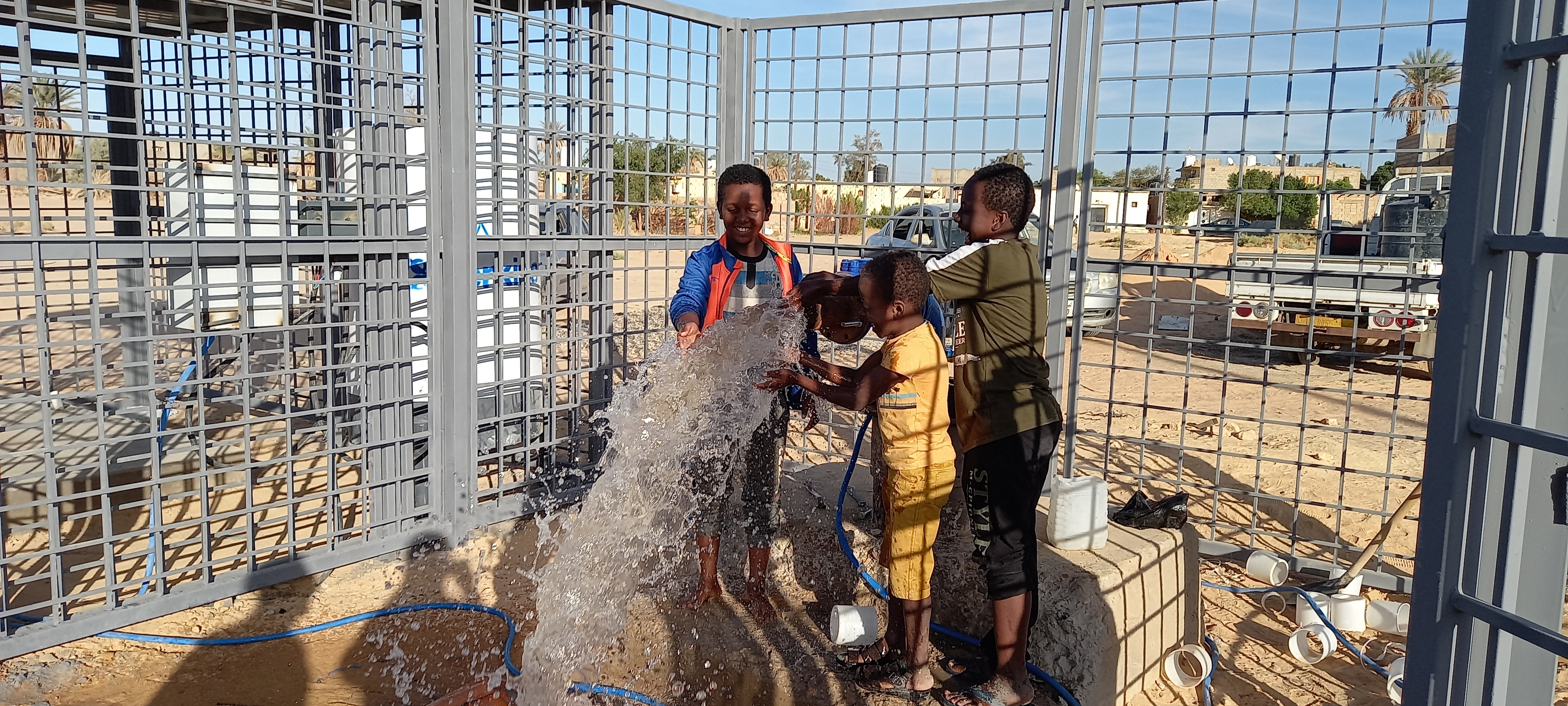Investing in lasting peace in the South
December 29, 2022

Western well in Godwah
We are pleased to introduce the second edition of our new quarterly Development Matters newsletter with the latest on UNDP in Libya. As the political stalemate drags on with no definite agreement to hold elections, it is Libyans who pay the price of delayed development as the country continues without a development plan or a budget essential to identify priorities and invest the necessary resources for the country to recover and grow, counting in its extraordinary level of resources. Indeed, as we underlined a few months ago during the launch of UNDP’s Global Human Development Report, Libya’s last decade of violence and political strife has eroded over 20 years of progress in human development. Recovery costs will only grow without a political agreement and a way forward. Libya not only needs to invest and grow but leap forward to catch up.
While the development plan and budget are agreed upon and as underlined in its new Country Program for 2023-2025, UNDP will redouble its efforts to accompany local authorities and communities in the most vulnerable areas of Libya, starting with the South, where human development indicators are the direst, where institutional capacities are the weakest but also where external factors, such as trafficking and pressure from migration corridors are the most important. As requested by authorities, UNDP will continue investing in building peace and resilience in the South, notably in Al-Kufra, Brak al Shati, Ghat, Tahala, Murzuk, Quatrun, Sebha, Shawerif, Rebiyana, Daraj, Algurdha Ashshati, Alsharguiya, Ubari, Alghrayfa and Bint Bayya.
In each community, UNDP invests in strengthening local authorities, civil society and helps them build local peacebuilding plans identifying priorities for development. Then it helps fund those plans, improving basic services eroded by years of weak investments and helping recover the economy by creating jobs and supporting young people who create businesses.
For instance, the southern city of Sebha suffered from poor infrastructure, specifically the sewage system. Over the years, the old sewer line was no longer able to do the job as more households got added to the city, adding to the rapid wear and tear of the sewers. UNDP was able to repair the sewage system, constructing and connecting it to the treatment plant, benefiting the entire city, including the host community, IDPs and migrants.
We are proud of the work carried out this year, having fully relocated the UNDP program and operations staff back to Libya, opening a new Country Office in Tripoli and strengthening our presence in Benghazi. We have also completed our national recruitment campaign, bringing over 50 new Libyan professionals into the team to sustain our mission. In 2023 we will strengthen our presence in Sebha while rolling out our new Country Program. In addition to the continued investments in local peacebuilding, UNDP will launch new programs to strengthen rule of law and local governance. For the first time, UNDP will launch new initiatives to facilitate energy transition and climate mitigation to safeguard the environment for future generations and improve growth prospects. As the new year dawns, it’s important to take stock and reflect on what we did well and how we can do better, especially in a volatile context as Libya, where we must constantly adjust.
Our commitment will continue to accompany leaders, organizations and authorities who have the interests of the Libyan people at heart to reverse the erosion of human development over the last decade so Libyans can fulfill their dreams and ambitions.

 Locations
Locations